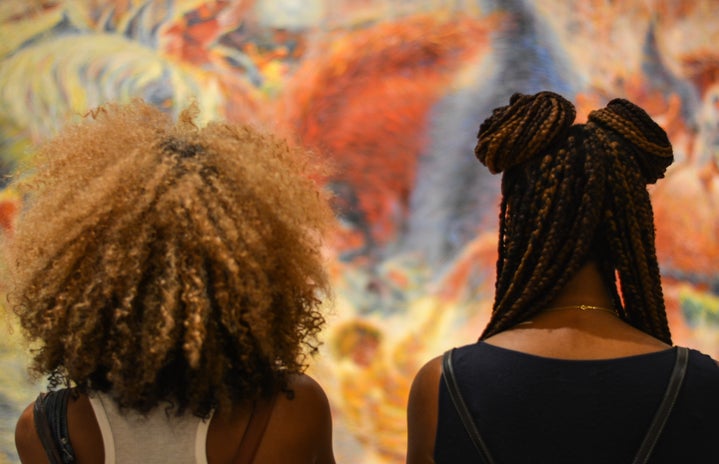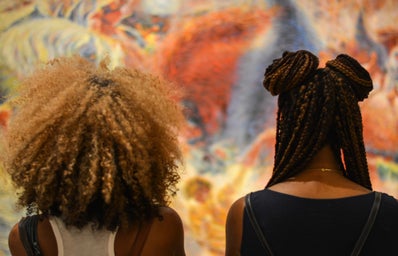Also known as Freedom Day or Emancipation Day, Juneteenth may be our newest Federal Holiday, but it’s still relatively unknown around the country. June 19th marks the end of slavery in the United States, and with the amount of work we have left to do — highlighted by the Black Lives Matter protests of summer 2020 — honoring it now is more important than ever.
Keep reading to learn why Juneteenth is so important, how it’s observed around the country, and resources to learn more about the history of slavery and Juneteenth’s important place in our culture.
The History Of Juneteenth starts on June 19, 1865.
Juneteenth marks the day when news of the abolition of slavery reached Texas, carried by Union Gen. Gordon Granger on June 19, 1865 — two and a half years after Abraham Lincoln’s Emancipation Proclamation took effect in 1863. Juneteenth is a celebration of the true end of slavery for millions in the deepest parts of the confederacy, and it’s observed across the U.S. to honor emancipation and bring awareness to today’s continuing racial inequality.
Juneteenth In Present Day is now our newest federal holiday.
Almost 200 years later, Juneteenth has really only begun to gain more awareness in the last few years, but it’s no secret that key moments in Black history are often watered-down — if not skipped altogether — in childhood curriculums. For example, it wasn’t until the summer of 2020, after backlash against Donald Trump for his initial scheduling of a campaign rally in Tulsa, OK on Juneteenth, that many people learned about the Tulsa race massacre of 1921, and its importance to the Black community.
In 2021, it was announced that Juneteenth would be declared a federal holiday by President Biden, making it the first new federal holiday since Martin Luther King, Jr. Day in 1983. While this may inherently feel like a major step in the right direction, some have brought to light a variety of concerns. First, this federal holiday benefits some workers more than others since many won’t be paid. Black Americans have also pointed out that it’s being used to distract from the fact that Black voters are still overwhelmingly repressed. What’s more, in some states, teachers can’t or won’t teach the history behind the holiday — including Texas, where, if you recall, Juneteenth originated.
Where Does The Lack Of Education Around Juneteenth Stem From?
Aside from a systemic unwillingness to rectify the whitewashing of America’s racist history, Critical Race Theory (CRT) also plays a big part here, depending on what part of the country you’re in. CRT is an academic tool based on the idea that racism is a systemic issue. The framework for CRT is not a commonly used education tool in and of itself, but many lesson plans reflect its foundational themes, and a lot of Republicans want to ban CRT — in any way, shape or form — from schools. That banishment effectively silences conversations about race, from the way slavery shaped our nation to racism in today’s society to, yes, the history of Juneteenth.
Moving forward, white Americans must use this opportunity to educate themselves on what Juneteenth means and take the time to think about their part in systemic racism — and the role they can play in dismantling it — while stepping back to allow Black Americans to center Black joy. As a country, the U.S. still shies away from discussions about its past injustices, so it’s important to use this holiday to acknowledge the trauma inflicted on the Black community and come to terms with our history in the era of the Black Lives Matter Movement, police brutality, mass incarceration, and general inequality.
Resources for observing juneteenth
If you’re looking for ways to observe Juneteenth by attending events, or learning more about Black history in America, here are a few resources to get you started. Keep in mind that this is not an exhaustive list, however, and there’s so much more to learn.
Virtual programming
- 13th Annual Juneteenth NYC Festival: While most of this three-day festival takes place in-person in NYC, there is virtual programming on Friday, June 17.
- What Is Juneteenth? An Online Learning Experience: This is a virtual, interactive history class that also includes a live Q&A session.
- #DoTheWork 30-day course with Rachel Cargle: This 30-day course is “designed to be an eye-opener and a call to action for those who seek to be allies to Black women.” While technically free, you can (and should) pay Cargle via her PayPal.
Film & TV
- 13th (Netflix): This documentary by Ava DuVernay takes a deep dive into the U.S.’s racist history and its repercussions that have lasted until today, especially in regards to the 13th Amendment and the prison system.
- When They See Us (Netflix): Also from Ava DuVernay, this miniseries depicts the story of the Central Park Five, five teenagers who were wrongfully charged and imprisoned for the rape of a white woman in 1989.
- Teach Us All (Apple TV): This documentary from 2017 takes a closer look at de facto racial segregation in the American school system.
Podcasts
- Code Switch by NPR: Hosted by journalists of color, this podcast tackles race in every part of society with humor and empathy.
- 1619 by The New York Times: This “audio series” delves into the history of slavery in the U.S., named for the year the first ship of enslaved Africans arrived on U.S. shores.
- The History of American Slavery by Jamelle Bouie and Rebecca Onion: This podcast has a straightforward name — it discusses the history of slavery in the U.S. and its impact on modern culture and politics.



